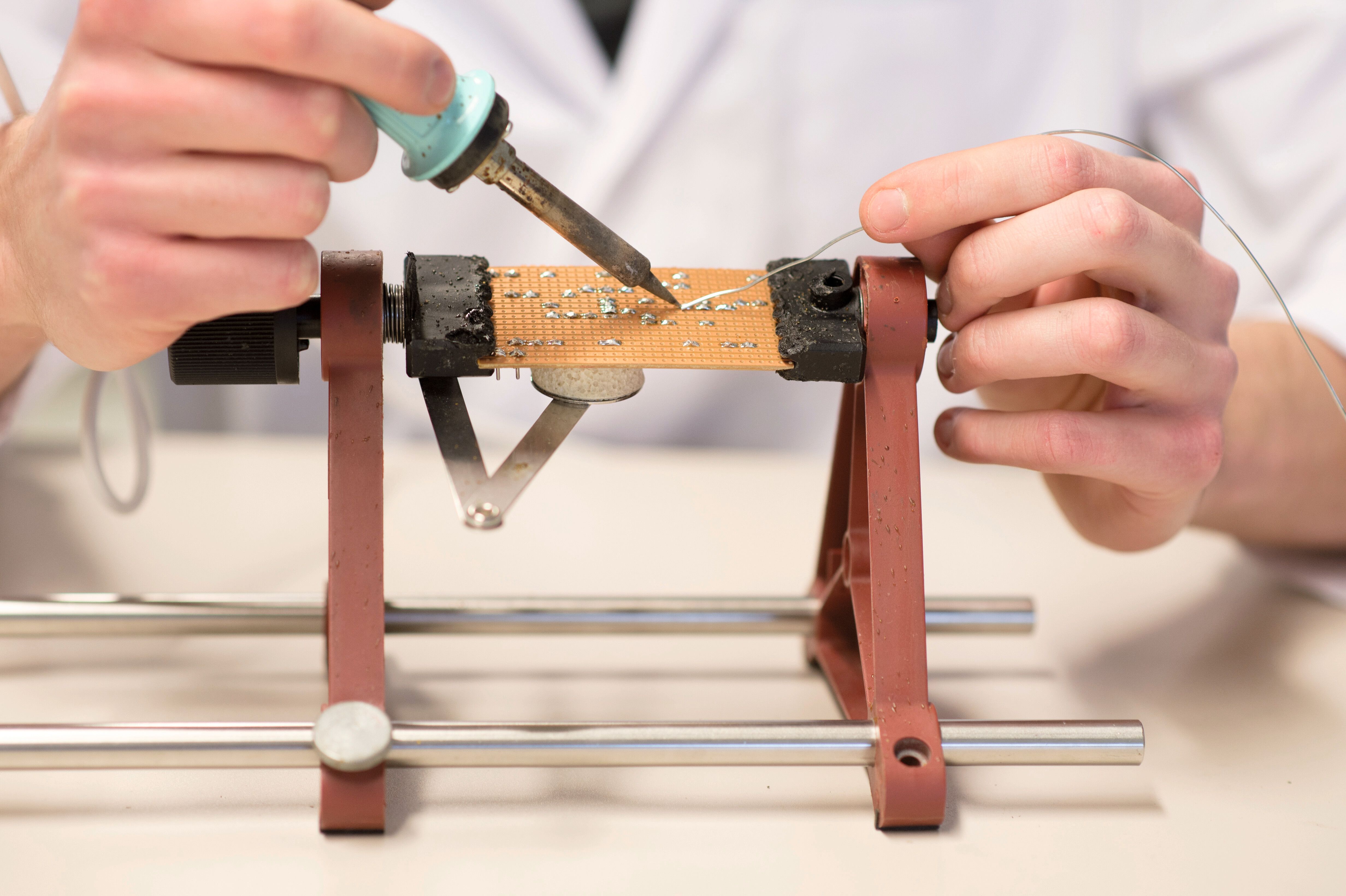Physics
From gravity to electromagnetism and sound: these are all phenomena that are based on the laws of physics. Physics enables us to better understand the world around us and solve problems.

Overview of the academic discipline
While experimental physics specialises in observation and measurement, theoretical physics is dedicated to creating models and theories. The intensive co-operation between the two fields leads to a progressive understanding of nature and enables a wide range of applications and uses. Recent examples of the implementation of physical research in technical applications include semiconductor technology, optoelectronics, nanotechnology and laser technology. Mathematics (see section 3.3.6) is the most important auxiliary science for physicists.
Which topics are included in the curriculum?
The Bachelor's degree programme provides basic training in experimental and theoretical physics, mathematics and other physical and non-physical subjects (e.g. chemistry and computer science). In addition, there are university-specific specialisation areas as well as the teaching of experimental and theoretical working methods (e.g. handling physical equipment, use of computers, measurement and evaluation methods). Topics such as mechanics, laser physics, photonics, electro- and thermodynamics as well as quantum mechanics are also part of the programme. In addition to lectures, exercises and practicals are the most important forms of teaching.
The Master's programme offers specialised training in several sub-subjects of physics. It is characterised by the scientific profile of the University and the Department of Physics and is divided into a specialist in-depth phase and a research phase in which students work independently on a scientific question. Possible Master's degree programmes include particle physics, astrophysics or quantum physics.
What are the requirements?
In-depth knowledge of the following school subjects is a good prerequisite for a successful course of study: Physics, maths, computer science and English.
What study programmes are there to choose from?
In addition to physics and applied physics, a number of interdisciplinary degree programmes have emerged, including astrophysics, biophysics and medical physics. Programmes are offered at universities and universities of applied sciences.
What job opportunities are there after graduation?
Physicists work in higher education and research institutions as well as in industry, for example in materials research, energy technology, mechanical and equipment engineering, medicine (technology), the semiconductor industry or the optical/optoelectronic industry. Many physicists also work in related technical and scientific professions, for example as computer scientists, mathematicians or engineers. Other fields of activity include the patent system and science journalism.
Freelance work is also an option, in particular as a consultant and expert.
